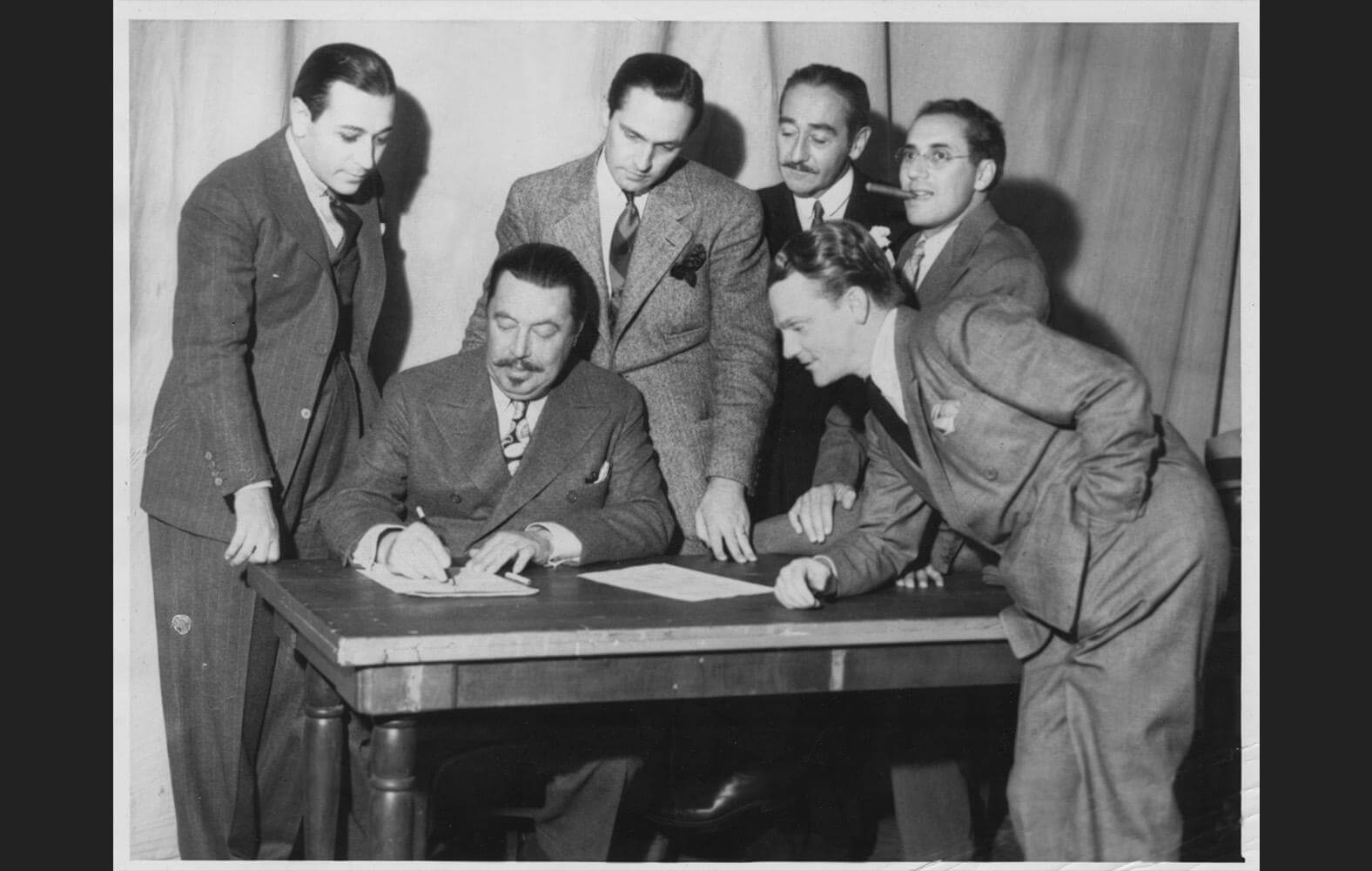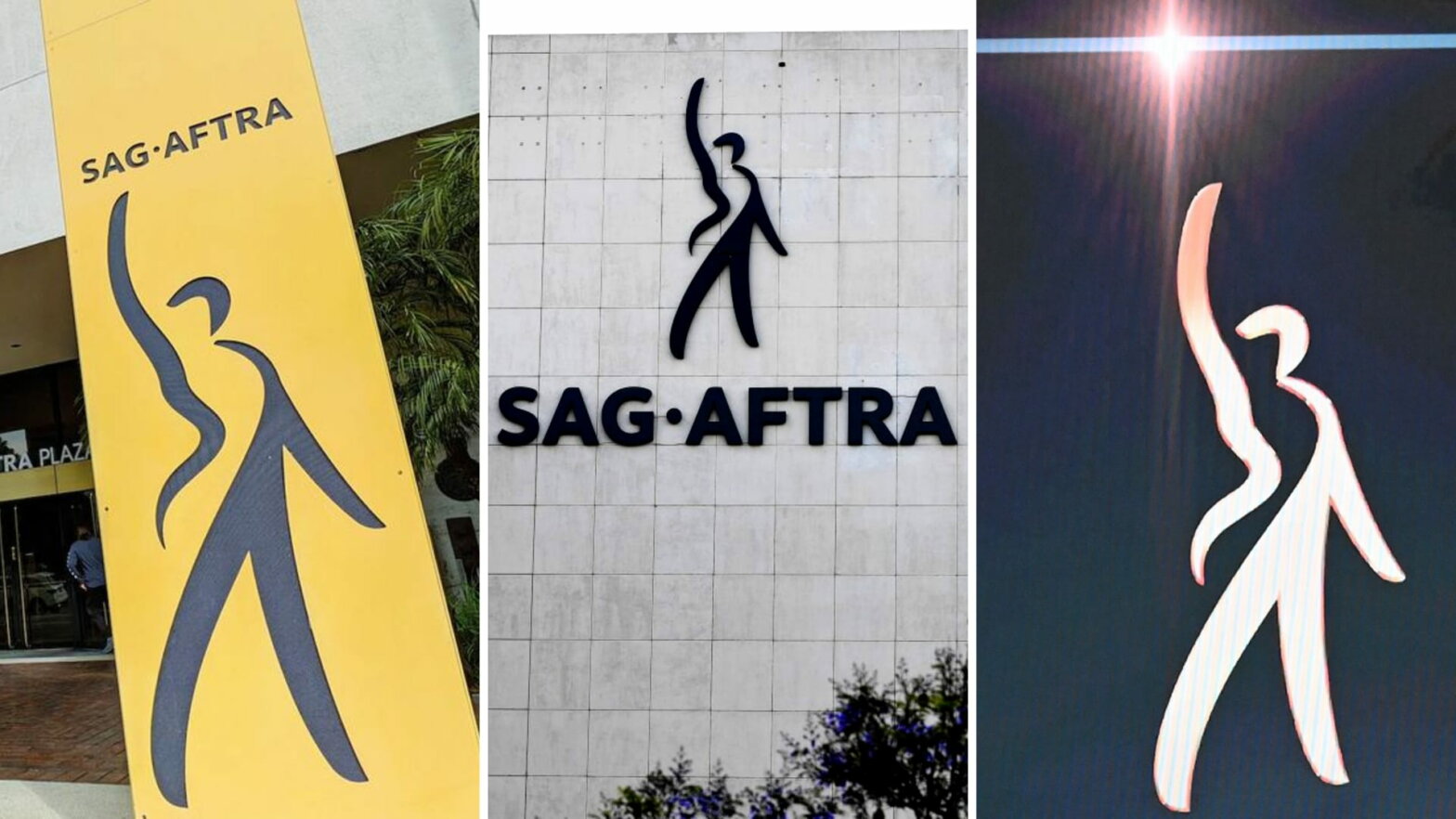Even if you’re not an actor, you’ve probably heard of SAG-AFTRA. The organization is embedded in the foundations of the entertainment industry, present in almost any high-profile production. Much like the members it represents, SAG-AFTRA has many roles. Let’s take a look at what the organization is, where it came from, and why it’s important.
What is SAG AFTRA?
An overview of SAG-AFTRA
Although you’ve probably heard the name thrown around, you might still be saying to yourself, “What is SAG AFTRA? I’m hopelessly confused!” Don’t beat yourself up, your ignorance is no fault of your own: the US prides itself on not understanding unions or paying artists a living wage.
Let’s set ourselves straight.
WHAT DOES SAG AFTRA STAND FOR?
What is SAG AFTRA?
SAG-AFTRA is an American labor union which represents film and TV actors, singers, voice actors, influencers, models, journalists, DJ’s, and other performers. SAG-AFTRA stands for the Screen Actors Guild - American Federation of Television and Radio Artists. The organization has about 160,000 members and is a member of the AFL-CIO (American Federation of Labor and Congress Of Industrial Organizations), the largest federation of unions in the United States.
Key SAG-AFTRA Members
- Ken Howard (First president of the merged union)
- Gabrielle Carteris (Current union president)
- Ralph Morgan (First SAG president)
160,000 people with SAG AFTRA membership is nothing to sneeze at. This video provides a great overview of how and why the organization has garnered so many members, and whether or not it would be right for you:
SAG-AFTRA pros and cons
To understand how SAG AFTRA membership is so massive, one must understand its history.
What is SAG AFTRA?
A brief history of SAG-AFTRA
SAG-AFTRA was officially formed on March 30, 2012. “But wait,” you might be thinking, “I’ve been hearing about SAG and AFTRA since the 1930s.”
First, congratulations on being 100 years old and navigating the internet. Second, you’re right: both SAG and AFTRA have existed since the 1930s. Until 2012, the two unions existed separately.
SAG was founded in 1933, the Golden Age of Hollywood, otherwise known as the Studio System. It was a golden age, however, which didn’t favor actors, who were subject to predatory contracts with studios that had little respect for them or their well-being.
And so SAG came about for the same reason most unions come about: laborers wanting a fair share of the pie they helped bake. With the power of collective bargaining, SAG was able to advocate for actors’ rights on and off screen.

The biggest stars of the '30s sign onto SAG • What is SAG AFTRA
As SAG was negotiating its first contract in 1937, AFRA, the American Federation of Radio Artists, was formed. AFRA would negotiate its first contract a year later, and in the 1950s would become AFTRA to incorporate workers in the new medium of television.
Since their respective inceptions, both the Screen Actors Guild and AFTRA have been involved in strikes, set strong guidelines for how their members are to be treated on projects, and garnered large memberships. Talks of merging the two groups existed since the 1930s, as of course there was lots of overlap between them, but the official combination didn’t come until 2012.
What is SAG AFTRA?
Why is SAG-AFTRA important?
SAG AFTRA membership isn’t just important if you’re an actor – and if you’re an actor, it’s very important, ensuring fundamental rights like healthcare and on-set safety. If you work in or around the entertainment industry, it is crucial to understand working with unions.
The union’s (understandable) popularity amongst actors means that if you’re a creative who needs a scrum of thespians, you’ll at the very least think twice before making a non-union project. A critical aspect of the Screen Actors Guild is that its members are not allowed to work on non-union productions. Thus, producers who choose to go the non-union route will be barring themselves from any actor who is part of the organization.
Just about every actor you know the name of (excluding that friend in a community theater production of Les Mis) has SAG AFTRA membership. So, in turn, almost every movie or TV show you can name is a union production.

A few union workers at the Screen Actors Guild Awards • What is SAG AFTRA
But this doesn’t mean that every actor is in the union. There are lots of productions that need actors but don’t need union actors.
Think about a small-budget driver’s ed video. This is a legitimate production, yes, but it doesn’t need Tom Cruise, Hanks, or Holland. A union project is going to be more expensive due to union minimums and requirements. And so the producer of the driver’s ed video is going to opt for the non-union route and use local, non-union actors.
Therefore, the Screen Actors Guild isn’t for everyone. If you’re a relatively unknown actor looking to build your reel, you probably don’t want to be part of SAG-AFTRA, because doing so would make you unable to work on small, non-union projects, which are the projects you’d be most likely to land at this stage in your career.
It should be noted, too, that non-union actors are able to work on union sets. But there are two catches.
- In many showbiz towns, union actors are prioritized in the casting process.
- If you’re in a union-friendly state (that is, not a “right to work” state), you can only work on two union projects before having to join the Screen Actors Guild.
So there are reasons to not join the union, but once you achieve a certain level of success, you’ll want to know how to join SAG AFTRA.
What is SAG AFTRA?
How to join SAG AFTRA
How to become a member of SAG-AFTRA: a question as old as time (2012). First, confirm your career is within SAG-AFTRA’s purview: you’re an actor, fashion model, voice performer, DJ, influencer, or some other media professional. If you’re a steel worker, this is probably not the union for you.
Once you’ve done this, there’s three routes which will qualify you for SAG AFTRA membership.
- Work at least one day in a principal or speaking role on a union production. This can be a difficult barrier to overcome, and so luckily there’s an easier option (see option #2).
- Work at least three days as a background actor (aka extra) on a union production. And finally, there’s probably the least likely route.
- Be a member of an affiliated performer’s union. This would include ACTRA, AGVA, AGMA, or AEA.
Again, it’s important not to jump the gun on union membership. While being a union member guarantees a minimum pay, safety, and other benefits, it also can cut you off from potential work. This is particularly true if you don’t live in Los Angeles or New York. If you’re living in Raleigh, for example, most of the acting work you’ll come across will probably be non-union.
In the end, however, if you want to be a working actor in an entertainment hub like L.A. or New York, you’ll eventually want to join SAG-AFTRA. Doing so will afford you more opportunities, more protection, and more power.
UP NEXT
WGA Minimums Explained
Are you a multi-hyphenate who's an actor and a writer? Loving the sound of SAG-AFTRA and wanting to learn more acronyms? Well, the WGA stands for Writers Guild of America, and like SAG, it protects its members (writers) and ensures them a certain pay rate. In this article, we walk you through what these pay rates are and why they’re important.
Up Next: WGA Minimums →
Showcase your vision with elegant shot lists and storyboards.
Create robust and customizable shot lists. Upload images to make storyboards and slideshows.
